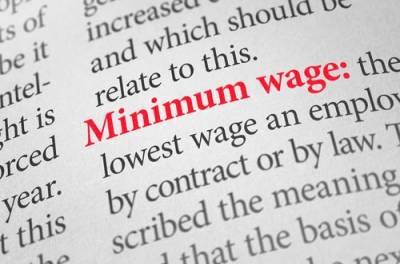
 847-995-1205
847-995-1205
New Rules on Subminimum Wage for Disabled People Now in Effect in Illinois
 Earlier this month, Governor JB Pritzker signed an executive order that prevents any company that contracts with the state of Illinois from paying disabled workers less than the minimum wage. The current minimum wage in Illinois is $11 per hour and $6.60 per hour for tipped workers. When signing the order, the governor said that his action was also geared to pushing Congress to change the federal law that currently allows companies to pay disabled people less than the minimum wage.
Earlier this month, Governor JB Pritzker signed an executive order that prevents any company that contracts with the state of Illinois from paying disabled workers less than the minimum wage. The current minimum wage in Illinois is $11 per hour and $6.60 per hour for tipped workers. When signing the order, the governor said that his action was also geared to pushing Congress to change the federal law that currently allows companies to pay disabled people less than the minimum wage.
Does Your Company Contract with the State?
According to the order, any vendor that currently pays a wage that is below the minimum will be required to renegotiate their contracts with the state. However, the governor did state that his order will not cost any worker who is being paid a subminimum wage their job. Instead, the state will work with their employers to make sure these companies will be able to keep providing disabled people with meaningful work opportunities while earning standard pay.
Currently, federal law allows employers to file for certification in order to hire people who are disabled and pay them at a subminimum wage. This law was passed in 1938 with the purpose of providing a temporary initiation for disabled people to enter the workforce. However, the law has never been updated.
Although the order currently only affects companies that have vending contracts with the state, many advocate organizations are pushing for the Illinois General Assembly to enact a new law that eliminates the subminimum wage for disabled people at every company in the state.
Wage Violations
In Illinois, if an employer is found guilty of violating the state's Wage Payment and Collection Act, they not only have to pay the employee the amount that the state says is owed in unpaid wages, but they must also pay the employee damages. These damages are calculated at 2 percent of the amount of unpaid wages owed for every month that those wages went unpaid.
The employer will also be required to pay the Illinois Department of Labor a $250 administrative fee. If the amount of unpaid wages is more than $3,000, that fee doubles to $500. Any unpaid wages of more than $10,000 will result in a mandatory fee of $1,000.
Once the order is issued, if the employer does not comply right away and pay all wages due, they could be ordered to pay a penalty. That penalty is 20 percent of the amount of the underpaid wages, as well as a penalty to the employee. This amount is 1 percent of the underpaid wages for every day the employer has failed to comply with the order.
Contact an Illinois Employment Lawyer for Legal Assistance
It is critical for employers in Illinois to be aware of any changes the state or federal governments make to wage laws, otherwise, the company could be at risk of charges of wage violations. If your company has been accused of being non-compliant with wage law or has mistakenly violated the law and needs representation, a Schaumburg, IL employment law attorney can help. Call The Miller Law Firm, P.C. at 847-995-1205 to schedule a free consultation and find out how we can help.
Sources:
https://www.daily-journal.com/news/illinois/pritzker-order-aims-to-end-subminimum-wage-for-disabled-people-in-state-contracts/article_14a200a5-10b2-5f40-879d-7d1570444fc2.html
https://www2.illinois.gov/idol/Laws-Rules/FLS/Pages/wpca-penalties.aspx
https://www.dol.gov/agencies/whd/special-employment
Contact Us


Schaumburg, IL 60173
Phone: 847-995-1205
